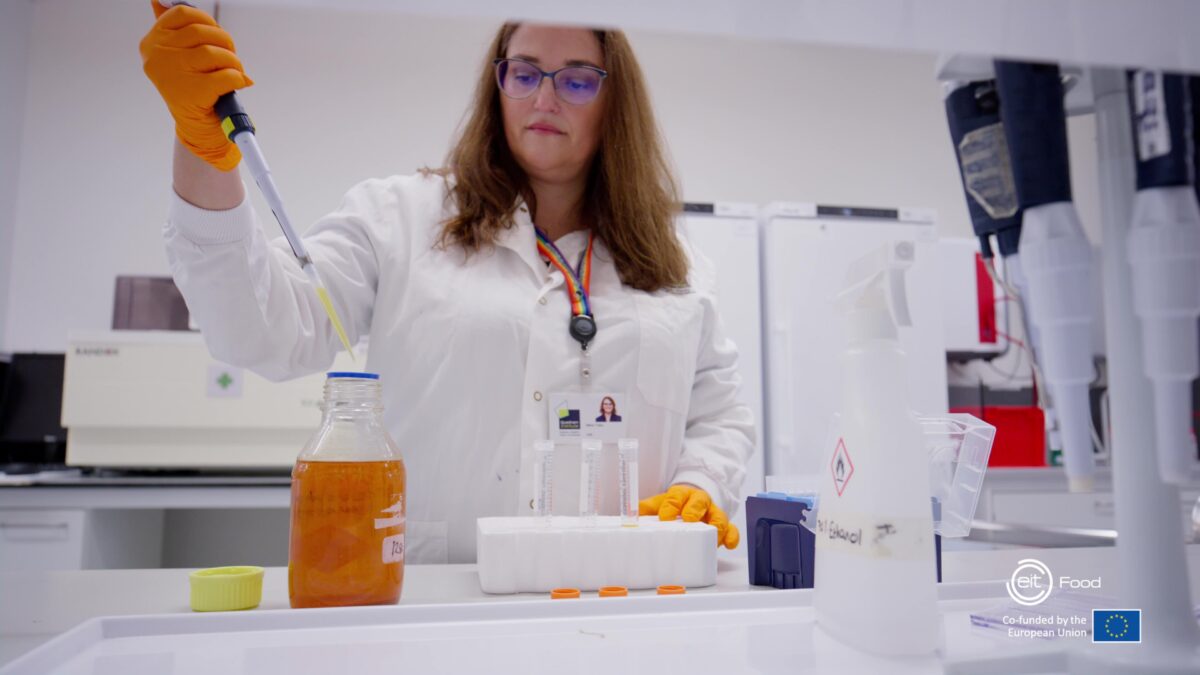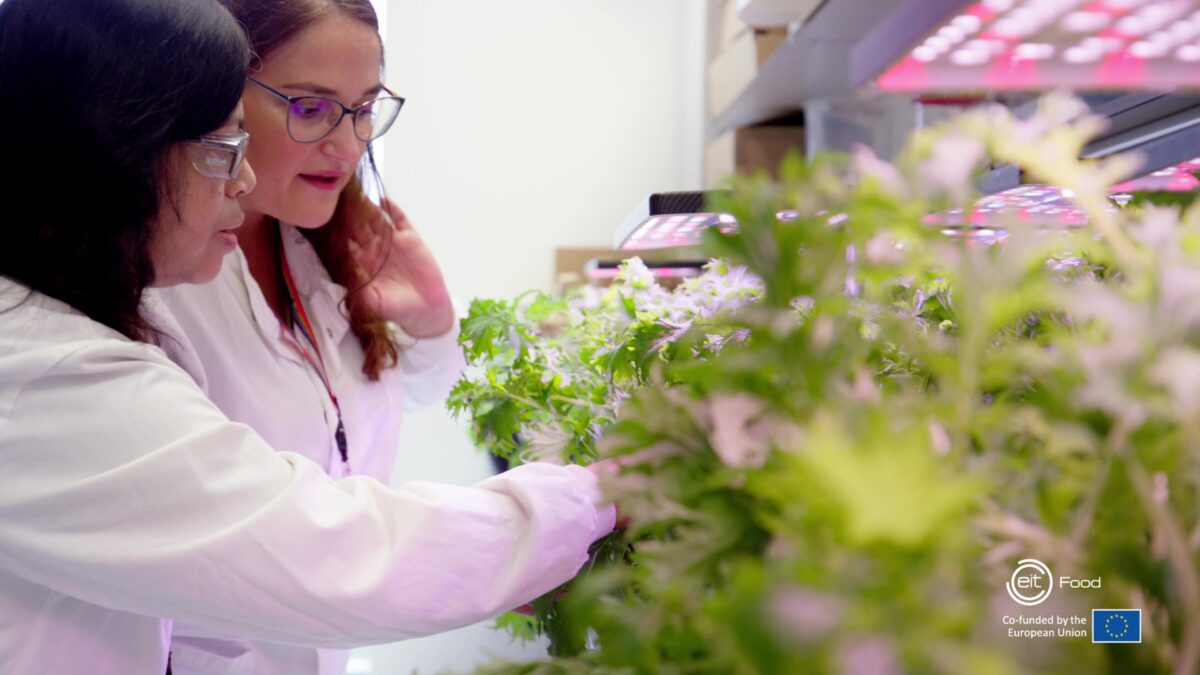
Discover a Day in The Life of a Nutrition Scientist
In this blog, we explore a day in the life of nutrition scientist who researches how the food that we eat affects our health.
Our EIT Food Day in the Life series is an educational resource aimed at young people who are interested in the agrifood job market. We profile a wide range of careers in the agrifood sector, interviewing professionals to find out what their job is like, why it is important, and how you could take up the profession.
You will learn:
- What a typical day is like as a nutrition scientist
- The main responsibilities of a nutrition scientist
- Why this industry matters to our wider food system
- How you can take up this career path
Meet Dr Maria Trika, a nutrition scientist at the Quadram Institute of Bioscience, an EIT Food partner.
Maria tells us about her job as a nutrition scientist and how you can train to become one too.

What does a typical day as a Nutrition Scientist look like?
Maria’s role involves analysing data with her colleagues that is collected from the work that they conduct with human intervention trials and work carried out in the lab. “I’m particularly interested in the interaction that the food has with the gut microbiome and how the two of them work together to promote our health”. Maria is very passionate about the importance of data analysis to understand the interactions between food and our gut health.
Maria often examines different foods in the lab and measures the different chemicals that exist within them. She investigates the different chemical compounds to determine a scientific conclusion about any beneficial effects that they have on our health. Overall, a job like Maria’s helps understand the different chemicals in foods that can have a positive impact on our health.
By being able to examine and collect this data, Maria is able to share her scientific research with her colleagues, as well as other organisations, to understand more about the link between our bodies and the food we consume, which essentially can be used for future food innovations and education regarding health and our bodies.

What inspired you to become a Nutrition Scientist?
“At the beginning of my studies, I was always interested in how the natural world works, and then I started expanding this to science because nutritional science brings together how our food, and our human body interacts with each other in order to keep us healthy.”

How does this career benefit the wider food system?
The food industry relies on nutrition scientists to provide us with information regarding chemicals in different foods to ensure they are safe to consume by citizens.
Nutrition scientists also hold a lot of responsibility for people’s overall health as they are the people that can share relevant knowledge regarding how our bodies will react to diverse foods and how healthy or unhealthy the nutritional chemical compounds are for our gut microbiome.
Without nutrition scientists, a lot of different careers within the food industry, such as nutritionists and food manufacturers, would struggle as they would lack the crucial information that they require to understand the link between food and our bodies regarding nutrition and safety. With the help of nutrition scientists who carry out many research projects and collect masses of data, we can make decisions around food and continue to evolve, creating (or improving on) the different foods available for purchase.

How can I get involved in this area? What are the pathways into this role?
To become a nutrition scientist, you should first consider a degree in biological science. This could be in a plant science, or nutrition science but by starting with a general biological degree, you can learn the required information to widen your knowledge and strengthen your confidence. After this, it is a good idea to continue your learning by doing a master's degree or a PHD degree that allows you to specialise in certain topics, for example Maria did a PHD degree and was able to specialise in how broccoli prevents disease for her thesis topic.
Taking the traditional pathway of achieving a degree allows potential employers to have confidence in that you know what you’re doing and are passionate about biological science. You could go down the route of working in research booths and undertaking research, similar to Maria’s job, or you could go down a different path and work as a nutrition scientist with the industry, which Maria says “Is really important because when we are thinking about producing new products, new foods, it is important to always keep nutrition in our mind so we can make healthy food”.

What is your favourite thing about being a Nutrition Scientist?
“The things that most excite me in my role is the fact that every day is a new day and I learn new things. Either through a conversation with a colleague or by reading literature, there is so much amazing science that is happening and it’s important to see what other colleagues (scientists) are doing across the world. That can sometimes be very time consuming but it’s really exciting because no one day is the same.”
Maria describes working with other scientists as a puzzle. “I know something, they know something, we bring it together and we discover something new” which shows that collaboration and teamwork skills are essential in this role to continue research and finding new data.
Maria describes her job in 3 words: Rewarding, collaborative, persistent

About EIT Food’s Day in The Life Series
EIT Food’s Day in the Life Series is a video series that explores the variety of careers that our agrifood system has to offer. The aim of the series is to raise awareness of the range of high-skilled and highly rewarding jobs that the food and farming sector has to offer and inspire younger generations to consider one of these careers for themselves.
More blog posts by EIT Food West

Making f!sh from microalgae and mushroom roots



